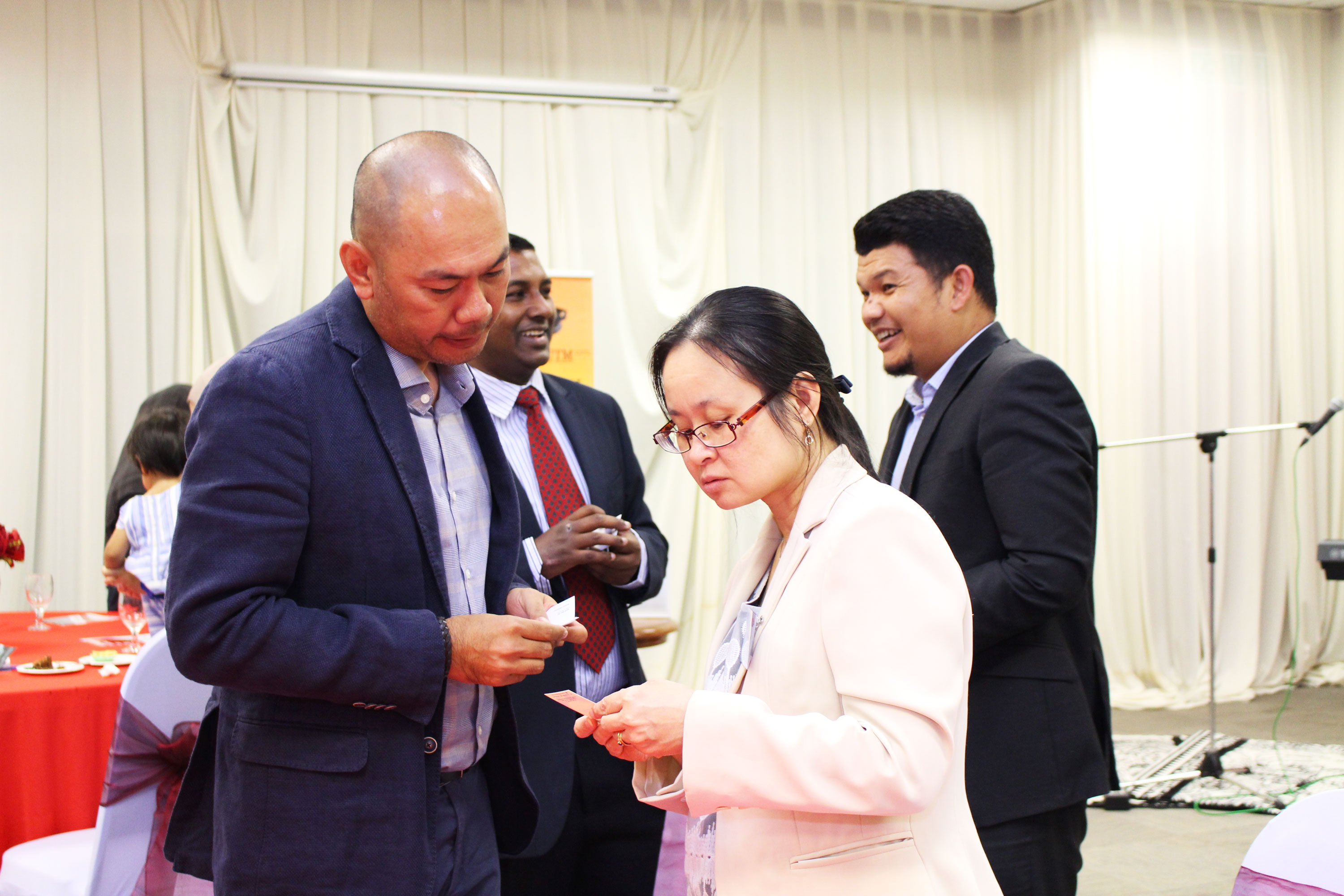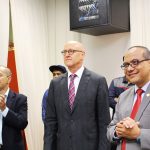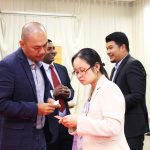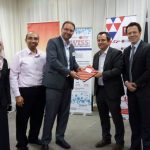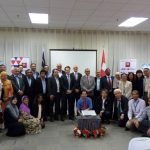EMBRACING INDUSTRY 4.0
The Swiss Malaysian Business Association (SMBA) and Universiti Teknologi Malaysia International Business School (UTM IBS) held their very first networking session on the 20th of July 2017 at the university’s campus in Kuala Lumpur.
The networking session was focused on Industry 4.0, which a SMBA member (Mr. Laurent Maillefer, Hub Business Unit Manager with ABB Malaysia Sdn Bhd) representing the business view and a UTM IBS invitee (Dr. Rahmat Shazi, Strand Aerospace director) providing the academic perspective.
First, Mr Maillefer elaborated on his department’s robotics capabilities which cater to the oil and gas, utilities, automotive industries in Malaysia.
In terms of industries on the S-curve adoption of Industry 4.0, he said the media, finance and IT sectors tend to be ahead of the curve, but Malaysia’s automotive sector have been early in adopters such as using robots on assembly lines.
Besides having Japanese carmakers as well as Proton and Perodua as clients, ABB has also provided components for the power supply to the LRT extension as well as electrical car chargers.
“We have also jointly developed a centralised metering supervisory software with Petronas to efficiently manage all flow metering systems and this has been successfully deployed in various Petronas onshore and offshore locations in Malaysia.
“ABB also saw the first unmanned and fully automated material handling process delivered for Vale in Malaysia. The system manages Vale’s total plant equipment including the conveyors, stackers, reclaimers, and ship unloaders,” he illustrated.
Moving forward, devices will move from being linked to local systems to the cloud, leveraging machine learning, AI and Big Data as more partners get involved.
“We have our own people and R&D but we also team up with partners such as Microsoft and IBM outside of our core capabilities in electrical engineering and automation.
“In terms of connecting things to the cloud, Microsoft provides us a reliable and secure system. In terms of machine learning and AI, we are teaming up with IBM in integrating these into our system,” Mr. Maillefer said.
ABB Ability is the company’s answer to this: with digital solutions built on a common set of standard technologies involving devices and sensors, automation systems, and plant enterprise solutions — connected on the cloud at the highest level of the service pyramid.
This is applicable in various situations including asset optimisation (i.e. car chargers portioning energy use effectively) to fleet management, back-up management, and customer service.
Next up was the academia perspective by Dr. Rahmat, whose company Strand aims to move the local aerospace industry up the value chain, from focusing on the maintenance, repair and overhaul space to design engineering and manufacturing of critical components.
“There are a lot of challenges in making sure our infrastructure can adapt to Industry 4.0, as there will be a lot more work needed at the higher level. It is estimated that Industry 4.0’s ratio of lost to created jobs is 7:1,” he explained.
Dr Rahmat pointed to UMW Group securing the jet engine fan casing manufacturing contract with Rolls Royce in 2015, which he said was Malaysia’s third try for the job.
“By then, we had a human capital programme in place to support Rolls Royce and UMW at Asia Aerospace City. At the Professional Development Centre there managed by MARA Aerotech, we work with universities and industrial partners including BAE and Airbus”.
“The apprenticeship model is applied alongside the academic model. They need to get their degrees, but at the same time they get industry experience and they get paid while on internship.
“This is not a typical internship model as industry is involved in training, recruitment and evaluation. As their time is paid for, top industry people give brutally honest feedback and scores because at the end of the day, the industry has to hire them. It is expensive, but that’s how you create the right human capital for Industry 4.0,” Dr. Rahmat said.
In his speech, H.E. Ambassador of Switzerland to Malaysia Mr. Michael Winzap highlighted Switzerland’s unique dual-track education system, which emphasises technical and vocational education and training (TVET) to create an innovation-driven economy and ensure readiness for Industry 4.0.
“About 60% of Swiss youth opt for the vocational training so more than half of Swiss go through an apprentice system while still spending some time in school,” he said, adding that more effort needs to be done to convince Malaysian parents to regard TVET as a viable education track.
Almost 80 people attended the dinner, which was graced by Ambassador of Switzerland to Malaysia, Mr Michael Winzap and UTM Pro-Vice Chancellor (International) Prof Dr Nordin Yahya.
The dinner was the third phase of UTM IBS’ Swiss Innovation Challenge Asia 2017 held in collaboration with the University of Applied Sciences and Arts Northwestern Switzerland.

